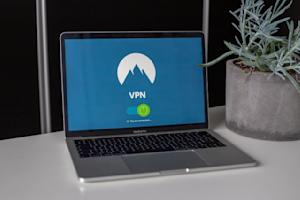Organizations continue to suffer from a nearly two-decade-old Wi-Fi hacking technique known as the evil twin attack. This attack is an excellent example of a Man-in-the-Middle (MitM) attack. Although well-known, evil twin attacks continue to be challenging to prevent without adequate security measures.
This blog delves into the notorious GRU hacking incident, where Russian hackers utilized the evil twin attack to infiltrate Wi-Fi networks and extract sensitive data from prominent organizations. We will then examine how a certificate-based Wi-Fi RADIUS solution could have mitigated this attack.
How Does the Evil Twin Attack Work?
The Setup: The cybercriminal sets up an imposter Wi-Fi network with a name (SSID) closely resembling a legitimate network. This copycat SSID may look identical, but the rogue network is crafted to deceive.
Luring the Prey: Unsuspecting users seeking internet access see the imposter network and connect to it, assuming it's the genuine one.
Data Interception: Once connected, all the user's data traffic, including sensitive information like login credentials, financial details, and personal communications, flows through the attacker's rogue network.
Stealth and Evasion: The attacker remains hidden, avoiding suspicion, and silently captures the data without the victims ever realizing their peril.
Wi-Fi Spies Caught: The GRU Hacking Incident Unveiled
According to SCEPlicity.org, the world recently learned about a high-profile hacking incident attributed to hackers within the Russian military agency GRU by deploying evil twin access points (AP).
The attackers executed these attacks to intercept sensitive data transmitted over Wi-Fi networks. Their targets included renowned organizations such as anti-doping agencies in Colorado, Brazil, Canada, Monaco, and Switzerland, along with the Westinghouse Electric Company's nuclear power operations, the Spiez chemical testing laboratory in Switzerland, and the Organization for the Prohibition of Chemical Weapons in the Netherlands.
The modus operandi of the Russian hackers was both sophisticated and audacious. They would park a vehicle close to the target buildings, converting it into their operational hub. The car housed an arsenal of tools essential for the attack, including batteries, a Wi-Fi Pineapple, a high-gain directional Wi-Fi antenna, a 4G modem, and a small computer with storage.
The Role of Certificate-Based Wi-Fi RADIUS Authentication
Organizations must adopt advanced security measures to mitigate the threats posed by evil twin attacks and bolster Wi-Fi network security. A certificate-based Wi-Fi RADIUS authentication solution is a powerful defense against these sophisticated cyber threats.
In such a solution, like the one offered by Foxpass, the authentication process relies on digital certificates for user verification. Implementing digital certificates significantly enhances trust and security within the Wi-Fi network.
When deployed within a Wi-Fi infrastructure, Foxpass validates the digital certificates of connecting devices and users. Access to the network is granted exclusively to those with legitimate certificates, rendering any attempts by hackers to establish rogue Wi-Fi networks futile.
Foxpass: Implementing a Secure Certificate-Based Wi-Fi RADIUS Solution
Foxpass is a leading provider of SCEP-based Wi-Fi RADIUS solutions, offering a robust defense against evil twin attacks and similar cyber threats. Its implementation provides the following advantages:
Robust Security: Foxpass ensures strong authentication through certificate-based measures, mitigating the risk of unauthorized access.
Centralized Management: With a centralized management platform, network administrators can efficiently oversee user access, certificates, and network devices.
Scalability: Foxpass caters to businesses of all sizes, accommodating evolving security requirements effortlessly.
Seamless Integration: Foxpass effortlessly integrates with existing Wi-Fi infrastructure, streamlining the deployment process.
Try Foxpass for Free
The GRU hacking incident and the use of evil twin attacks are a stark reminder of the evolving cyber threats organizations face. To counter such sophisticated attacks, adopting certificate-based Wi-Fi RADIUS solutions, exemplified by Foxpass, plays a pivotal role in fortifying network security. Vigilance and cutting-edge security implementations are essential in safeguarding against the ever-evolving cyber landscape.
Try a free trial of Foxpass now and to secure access to your Wi-Fi network.





